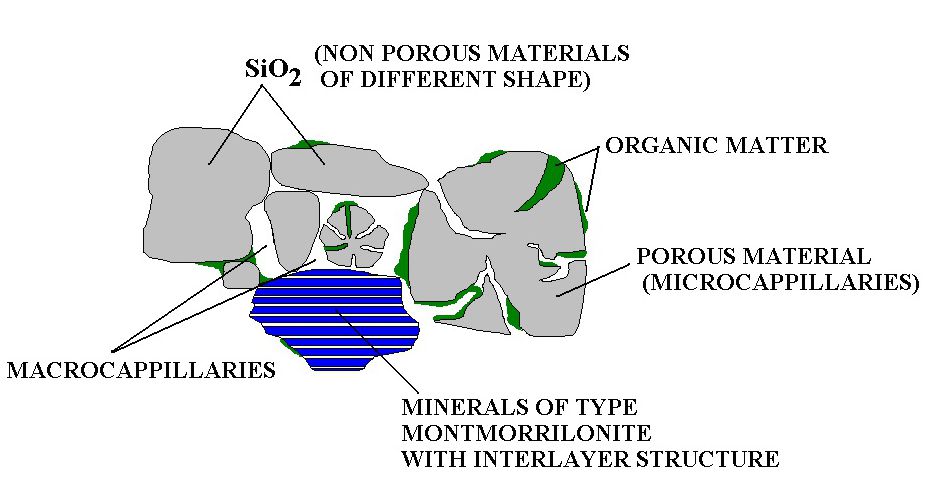Leader: Prof. DSc Zofia Sokołowska
Team: Prof. DSc Grzegorz Józefaciuk; Assoc. Prof. DSc Alicja Szatanik-Kloc; PhD Patrycja Boguta; PhD Kamil Skic; PhD Katarzyna Szewczuk-Karpisz; MSc Patrycja Krasucka; MSc Agnieszka Tomczyk; MSc Marta Cybulak; Prof. DSc Jerzy Lipiec; Prof. DSc Bogusław Usowicz
Soil is a very complex polydispersive, multiphase, multi-component and nonequilibrium system. Processes and phenomena occurring on the boundaries of solid-liquid and gas phases differ from those occurring in bulk phases due to the presence of surface forces. Knowledge of their nature is of primary interest for the understanding and control of different soil processes on micro and macro-scale. For example, water transport, permeability and retention are governed by soil solid phase wettability, surface free energy, surface area, microporosity, swelling of clay minerals, hydrophilic/hydrophobic character of soil organic matter, hydration of surface cations, surface charge, micro and macrostructure and some others.
Surface of solid phase of soil and plant roots are highly non-uniform. Analysis of gas or vapour adsorption isotherm is probably the easiest method to characterize such surfaces. From the isotherm one can estimate an overall amount of the surface (surface area) of the solid as well as its energetic and geometric heterogeneities and microporosity.
Application of potentiometric titration method enables to determination of CEC value (cation exchange capacity) as well as heterogeneity degree of surface charge. The surface charge is the expression of the dissociation reaction of surface functional groups. Relative number of surface functional groups of varied acidity can be changed under influence of stress factors (among others: low environment pH, heavy metals concentration).
Releasing and migration of organic compounds including humic substances, has effect on transport of nutrients, heavy metals and organic pollutants. Interactions between metals and humic acids are complex. The mechanism of this process is depended on many factors, first of all: properties of humic acids, kind of metal, it concentration and pH of environment. The studies are carried out with application of the following methods and instrumental techniques: absorption atomic spectrometry, UV-VIS, turbidymetry, potentiometric titration, elemental analysis, fluorescence spectroscopy, FTIR as well as TOC measurements.
Stress conditions for plants are a signal which induces a number of biochemical processes in plant cells (for example: changes of cytoplasm pH, electrostatic potential of cell membranes or changes of ions flow). In result, metabolic and transport processes are often modified, which lead to loss of cell homeostasis and even to dying of plants. From the physicochemical side, the processes of uptake by roots and then, ions transport are determined by the surface charge of roots. Anatomical and biochemical changes induced by stress factors lead to changes of physicochemical characteristics of the root, which can be also visible by changes in distribution of surface charge. Complex reactions of plants under stress need to carry out comprehensive analysis of physicochemical, chemical and biochemical properties of roots and cell walls. Changes of the pectins content, their methylation degree and PME activity as well as parameters describing capability of cation exchange are determined by kind and strength of stress factor and by species of plants.
The aim:
- Study and assessment of environment state on the basis of analysis of soil, soil components, plants as well as with application of adsorption methods for investigation of solid samples.
- Influence of organic materials introduced to soil (organic wastes, biochar) on chemical, physical and physicochemical properties of soil.
- Interactions between humic acids and metal ions.
- Physicochemical and surface characteristics of solid phase of soils and plant.s
- Assessment of abiotic stress effect (drought, acidification, heavy metals) on metrometry, selected surface and biochemical properties of plants roots and cell wall.
Detailed chemical and physicochemical description, stability of wastes and biochar in soils as well as results originated from model experiments with soil allow to explain influence of these materials on properties of interface of soil system and assessment of soil as a sorbent of vapours, gases and ions as well as assessment of usefulness these materials in agriculture. It is beneficial both for environmental and industrial point of view. Studies and analysis of complexation process in system: humic acids-metal ions will allow to explain and interpret a mechanism of interactions between humic acids and selected heavy metals (for example: Cu, Mn, Fe, Zn) in different conditions of pH and metal concentration. These studies will also give opportunity for determination of mutual influence of selected heavy metals and humic acids on their mobility in soil environment. Application of adsorption methods and potentiometric titration allow to asses an influence of abiotic stress on plants through analysis of surface properties of plant roots and cell wall.













